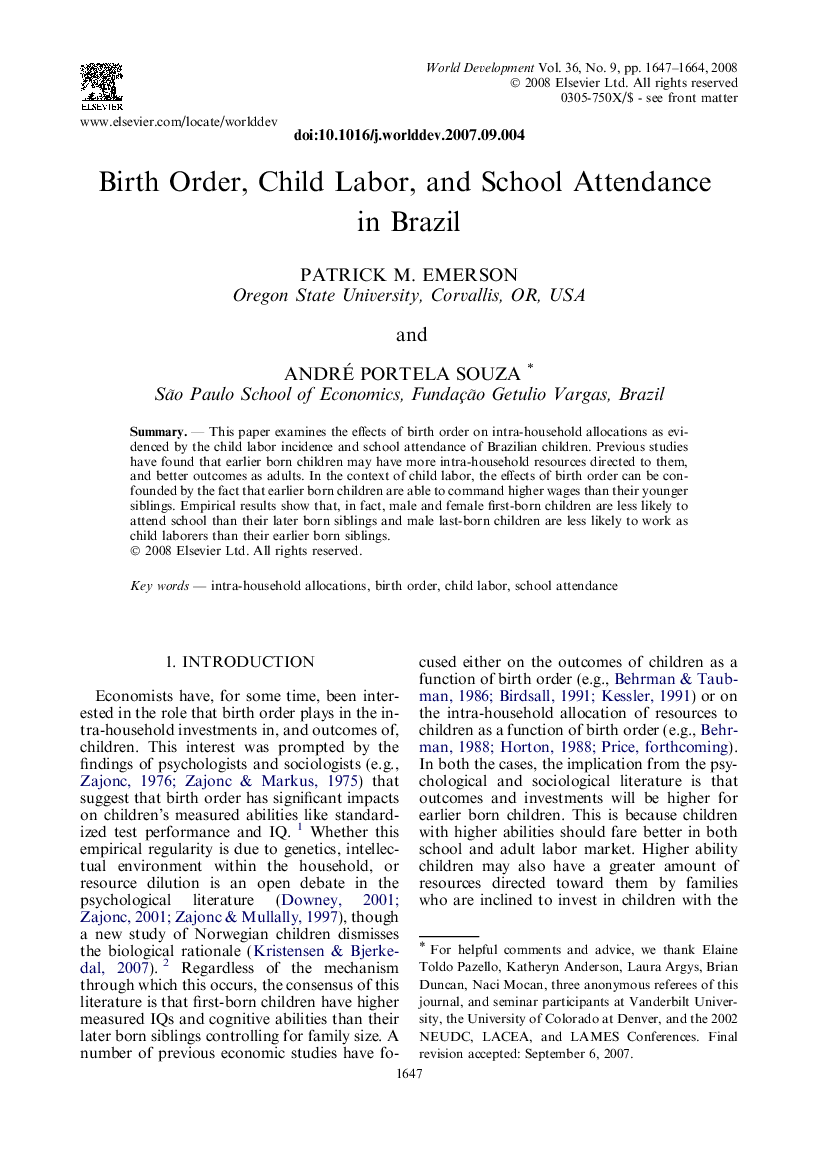| Article ID | Journal | Published Year | Pages | File Type |
|---|---|---|---|---|
| 991025 | World Development | 2008 | 18 Pages |
Abstract
SummaryThis paper examines the effects of birth order on intra-household allocations as evidenced by the child labor incidence and school attendance of Brazilian children. Previous studies have found that earlier born children may have more intra-household resources directed to them, and better outcomes as adults. In the context of child labor, the effects of birth order can be confounded by the fact that earlier born children are able to command higher wages than their younger siblings. Empirical results show that, in fact, male and female first-born children are less likely to attend school than their later born siblings and male last-born children are less likely to work as child laborers than their earlier born siblings.
Related Topics
Social Sciences and Humanities
Economics, Econometrics and Finance
Economics and Econometrics
Authors
Patrick M. Emerson, André Portela Souza,
